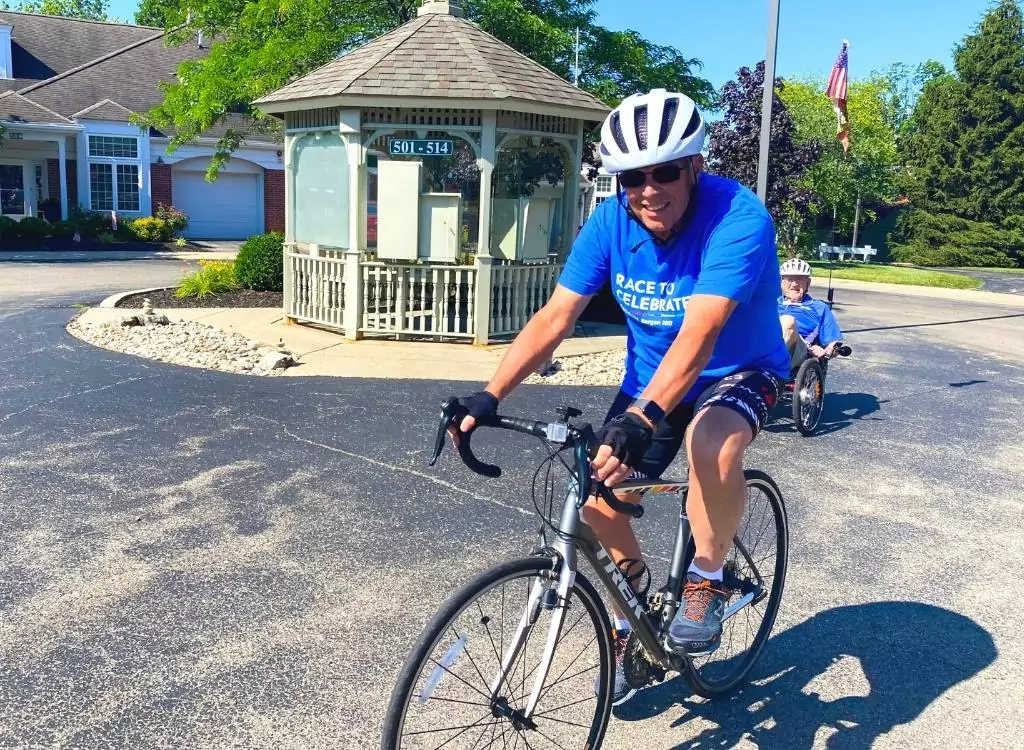As individuals approach the age of retirement, they will often explore housing options that cater to their specific needs and lifestyle. Often used interchangeably, active adult communities and retirement communities present very different opportunities for older adults. Understanding the difference between these two living options for retirees will help you make an informed decision that fits your lifestyle.
Active Adult Communities
Active adult communities are designed for individuals that are seeking an independent lifestyle. These communities typically feature single-family homes, townhouses, or condominiums. Key features of active adult communities include:
Age-Restrictions
One defining characteristic of active adult communities is the 55+ age restriction. These communities aim to create an environment where residents can enjoy an active and social lifestyle amongst their peers. Age restrictions help ensure a sense of community and shared interests.
Lifestyle
Geared towards an independent lifestyle, these communities provide an environment where residents are encouraged to pursue their hobbies, remain active, and socialize. While some residents of active adult communities may still work, others will spend their time organizing clubs and excursions with their neighbors. These communities do not typically have dedicated staff onsite to organize outings and activities.
Services and Healthcare
Maintenance and landscaping services are commonly provided to residents in active adult communities allowing them the freedom to maintain their own home independently. Interior maintenance of the home such as housekeeping services are not usually provided and would have to be contracted out. Healthcare and support services may not be readily available in the direct vicinity of the community. Should a resident’s health needs change, they may have to consider relocating to an assisted living or skilled nursing community.
Retirement Communities
Retirement communities are designed to provide a supportive and inclusive environment by offering a range of living options and care levels. A variety services are provided to residents based on their changing needs and independence. Key features of retirement communities include:
Age Diversity
Continuing care retirement communities like Maple Knoll Village are designed to allow residents to age in place by providing all levels of care. This includes independent living, assisted living, memory care, and skilled nursing. These different levels of care allow for a diverse range of resident ages and abilities.
Retirement communities employ activity staff dedicated to creating engaging activities and excursions for residents. This fosters a sense of community and belonging by encouraging residents to socialize, connect, and participate in group activities. At Maple Knoll Village, each level of care has its own dedicated activity staff ensuring activities are personalized based on individual abilities. Our residents enjoy a variety of activities and excursions such as weekly happy hours, technology classes, cooking demonstrations, and scheduled trips to art performances, museums, and restaurants.
Focus on Services and Healthcare Support
Retirement communities ensure quality care and support is provided by offering on-site healthcare services or local healthcare partnerships. Services may include assistance with daily activities, medication management, wellness programs, access to medical professionals, and specialized memory care for individuals with dementia or Alzheimer’s disease.
The nursing staff at Maple Knoll Village provide quality and compassionate care for residents with the bonus of an on-site clinic staffed by highly accredited physicians. The availability of healthcare services within the Maple Knoll community ensures that the changing health needs of residents are addressed promptly and effectively.
Retirement communities also provide a wide range of services such as: dining, housekeeping, transportation, landscaping, and maintenance. Residents of Maple Knoll also enjoy many on-site amenities including: a fitness center and indoor pool, multiple dining venues, a hair salon, technology lab, gathering spaces, and an accredited arboretum.
Making the Choice
Choosing between an active adult community and a retirement community depends on your needs and desired lifestyle. Active adult communities are ideal for those who live independent and active lives without fear of the future. Retirement communities are ideal for those who desire a supportive and inclusive community with options for different levels of care as their needs evolve.
When considering your retirement living options, it’s important to carefully consider factors such as lifestyle, healthcare requirements, and long-term goals. Touring different communities, talking to current residents, and consulting with loved ones can help you make an informed decision that aligns with your vision of a fulfilling retirement. To schedule a tour of Maple Knoll Village, please visit www.mapleknoll.org or call 513-782-2717.



